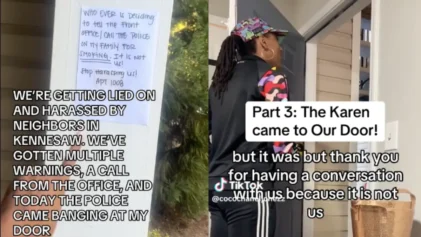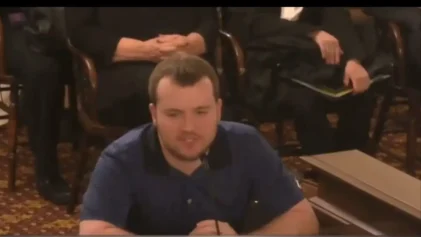The white North Carolina man who made a threatening call to a Black church in Virginia after one of its leaders attended a George Floyd prayer vigil, was sentenced to two years in prison on Thursday.
John Malcolm Bareswill, 63, of Catawba, North Carolina, pleaded guilty in August to calling New Hope Baptist Church in Virginia Beach, making racist remarks and threatening to set it on fire.
The call was made on June 7, just days after a church leader attended a prayer vigil and peaceful protest for George Floyd in the aftermath of his May 25 death.
“John Malcolm Bareswill reacted to a prayer vigil and rally held in memory of George Floyd by threatening to burn down an African American church,” said G. Zachary Terwilliger, U.S. attorney for the Eastern District of Virginia, in a Nov. 12 statement. “Answering the exercise of constitutional freedoms with threats of violence — especially threats that tap into a long and shameful history of racially-motivated violence against houses of worship — requires swift and certain justice.”

The call was made in the middle of Sunday Bible Study, and the assistant minister put the caller on speakerphone in front of her three young grandchildren who heard Bareswill call them a racial slur and threaten to burn the church down.
Bareswill also called another church associated the the vigil, but no one answered.
“Bareswill’s threat terrified the adult Sunday school teachers who heard it and affected the entire church community. While this sentence cannot undo that harm, it sends an important message,” Terwilliger said.
Bareswill said in later, in court documents, that he was worried about the impact the peotests would have on a package delivery business he owned in Virginia Beach.
Prosecutors had only asked for Bareswill to receive a 12- to 18-month sentence, but U.S. District Judge Raymond A. Jackson handed him two years.
The two women who were leading the Bible study when the call was made say they remain haunted by the Bareswill’s threats.
“It’s in the back of my head always,” one wrote in a letter to the court.


